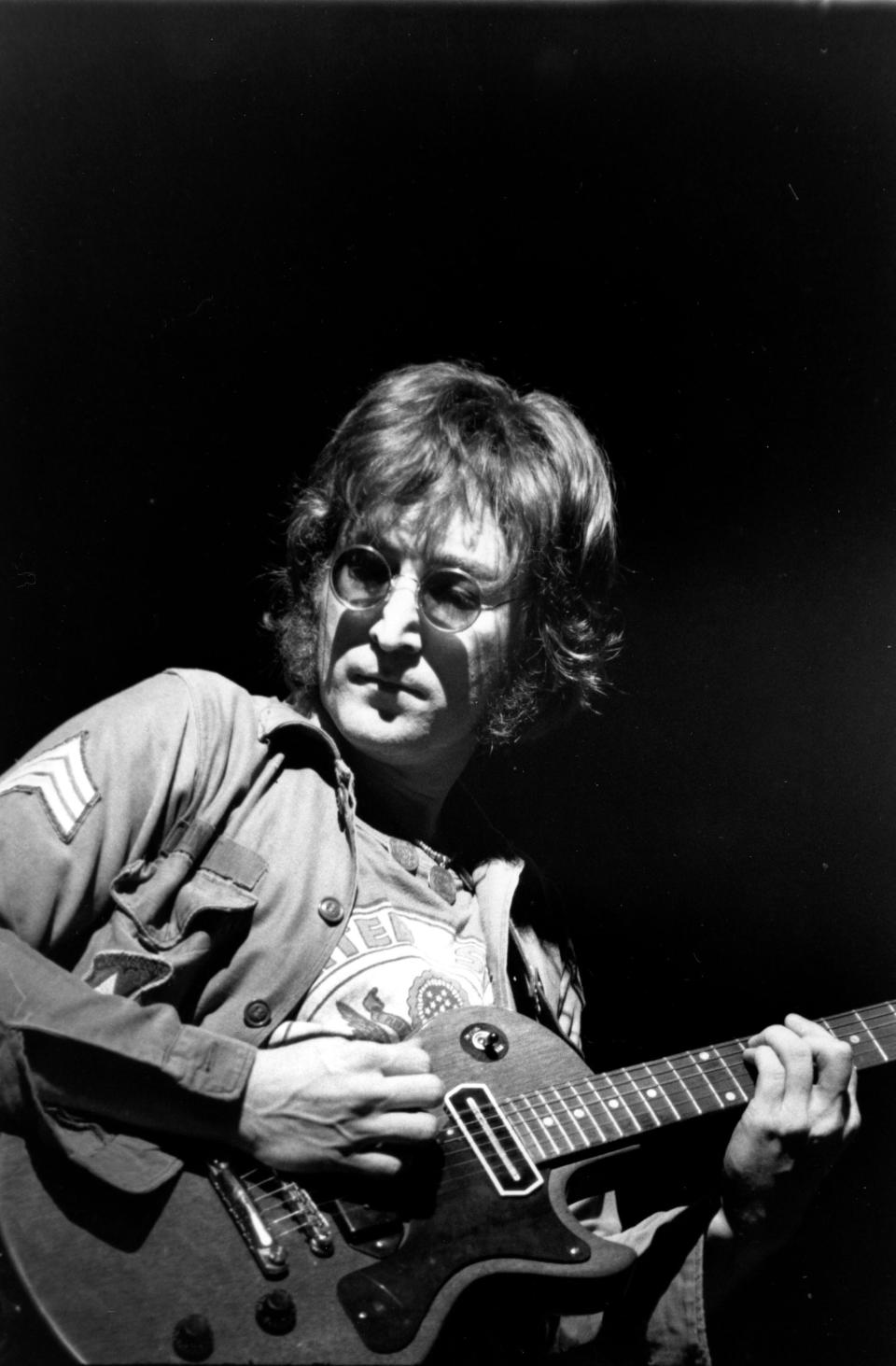40 years after his death, John Lennon's once-maligned final album 'Double Fantasy' is a poignant farewell
- Oops!Something went wrong.Please try again later.
John Lennon enjoyed one of his biggest post-Beatles successes with "Double Fantasy," which sold more than 3 million copies and picked up album of the year at the 1982 Grammy Awards.
But the legendary singer-songwriter sadly never got to see his final album embraced. Forty years ago, just weeks after its November 1980 release, Lennon was murdered outside his Manhattan apartment on Dec. 8, 1980. He was 40.
"Double Fantasy" was Lennon's fifth album with wife Yoko Ono, and their first since 1975's "Rock 'n' Roll," after which, they took a break from music to raise their infant son, Sean. Anticipation for Lennon's comeback was naturally high, only to receive a critical drubbing upon its initial release. The Village Voice called it "The Infantilization of John Lennon," while NME sneered that Lennon should have "kept his big happy trap shut until he had something to say that was even vaguely relevant to those of us not married to Yoko."
Reviews from Rolling Stone and The New York Times were similarly uncomplimentary, and were soon pulled from publication following Lennon's murder.

"Many listeners and the rock press were dismissive of the record," says Kenneth Womack, author of "John Lennon 1980: The Last Days in the Life." "There were a number of complaints suggesting they were engaging in a kind of navel-gazing. There were critics who took issue with the fact they were sharing – to those critical ears – the mundanities of everyday life."
Lennon, for his part, was mostly unbothered by the unfavorable reviews.
Responding to critics who called it "middle of the road," Lennon joked, " 'Yeah, we're going right down the middle of the road to the bank,' " Womack says. "It demonstrates just how centered he'd become. It was a very happy experience for them, making the record made it all worthwhile. That's why they went right back into the studio to work on 'Walking on Thin Ice,' because they were loving what they were doing."
Ono's "Walking on Thin Ice" was the last song Lennon would work on before his death, and was later included as a bonus track on a "Double Fantasy" reissue. They were in the studio recording it the morning of his murder, and Lennon was said to be holding a tape of the song when he was shot by incensed fan Mark David Chapman. The lyrics are eerily prophetic in the context of Lennon's death, with multiple references to "paying the price" and "the game of life." ("When our hearts return to ashes," Ono sings, "it'll be just a story.")
Other songs took on haunting new resonance after Lennon's murder, as he celebrates new beginnings on "(Just Like) Starting Over," and sings to his son on the dulcet "Beautiful Boy (Darling Boy)." As a result, the critical reappraisal was immediate and fans warmed to "Double Fantasy," viewing its joyful, contented musings as the last record of a life cut tragically short.
In comparison to early reviews, the reaction was "night and day," Womack says. "The absolute unthinkable happened, and you couldn't hear anything without thinking about the fact that he was cut down walking back home."
"What I think is ultimately interesting when you take the long view is that John Lennon was once again ahead of the curve," Womack adds. "He was doing something that people hadn't done really before in rock music: He was being an adult writing about adult things, having a kid or the frustrations of everyday life. We thought differently at the time about rock stars and rock music – it wasn't something you were supposed to do when you got older. So this was all new territory."
This article originally appeared on USA TODAY: John Lennon: Reevaluating 'Double Fantasy,' 40 years after his death

